Naming the company after a novel by the famous Russian writer Pelevin, $300 of salary for programmers and a constant struggle for survival for 2 years — so was the start to this story. This year GP Solutions, a leading vendor of software development services for the travel and tourism industry, has turned 20. One of its Co-founders, Sergey Zubekhin, gave an extensive interview where he brought back all the difficulties the company had to face initially and what has come out of it.
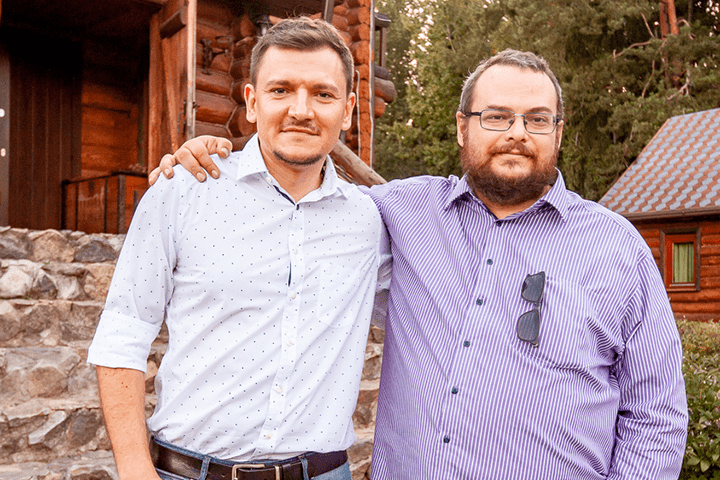
Living on a salary of $150 and looking for ways to start own business
In 2002, immediately after graduating from the Faculty of International Economic Relations at the Economic University, I found my first (and the last) paid employment. It was according to my acquired specialization, at a Siemens partner company. I worked as a foreign trade manager. This was exactly what I studied for at the university. The job was quite prestigious, with relatively bright prospects at the time. However, the salary was very modest (although quite decent for a young economist back then).
So, I got my first salary of $150. I had to pay $70 to rent an apartment and then make a living on what remained. I looked at my colleagues, how diligently they worked, and realized — if I want to add at least an additional $100 to my salary, I’ll have to work a minimum of 5 years to make it happen. I didn’t feel too good about it and started coming up with my own business ideas. I can recall myself seriously considering opening a cafe or a pizza house. I studied the relevant business processes, requested and received a few offers from equipment suppliers…
Quite miraculously, my friend Rodion Zhitomirsky, who lived in Germany, had similar thoughts of starting his own business at the time. I have known Rodion since 10th grade. We studied together in a lyceum-level math class. Throughout the school years Rodion was all about programming. He even tried to get me “on board” a few times, but in vain 🙂
We parted our ways after school. But just for some time as it turned out. I entered my university, and Rodion moved to Germany with his family. There he started working as a software engineer for some of the famous technological companies (it was during the “dot-com era”) at quite a young age, earning very good money. Nevertheless, he was always passionate about starting a business of his own.
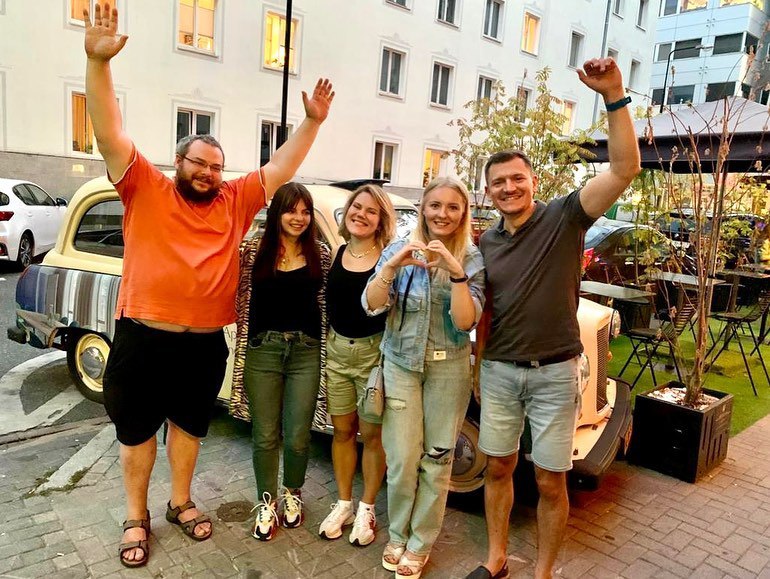
The beginning of a “wild startup” — Generation P
Me and Rodion connected via ICQ for a chat and had a few laughs at how our plans coincided. Then we met and just one meeting was enough to decide we’ll start a company. Our business idea may seem quite trivial now. But I wouldn’t say it was this obvious or mainstream back then. Having worked in the IT sphere for a while, Rodion already noticed the rising demand for software engineers in Western and EU countries. The concept was as follows: Rodion was to look for leads and software development requests in Germany, he would act as a developer and architect, and my part was to find local workforce and coordinate the process. We were both 22 years of age at the time.
In practice the division of roles between us was quite arbitrary, especially at first stages. We had a lot more additional things to handle and often worked them out together. Rodion already had a client who was ready to give us our first project. He became the first customer at our company and helped us train, get through the first mistakes and acquire invaluable experience in software delivery.
We rented a two-room apartment for an office, bought a few chairs, tables, PCs and started building our company. The first thing to do was to hire software engineers. There weren’t many IT companies these years as the IT market was just emerging. It was quite easy to find employees, even if we would invite them for an interview in a simple residential flat of two rooms.
Now it may sound unreal, but so was the reality. The main challenge we had was the lack of experience in finding, interviewing, selecting our employees and handling on-going staff management. There was an age issue as well. It was tough for us, young guys at 22 years of age, to hire mature and experienced professionals. Nevertheless, the first developer we hired was 12 years older than us. : )
The world-famous Wargaming (the company had a different name back then, I won’t remember it now) was already active for several years at that time and had an office near Nemiga district. They rented a three-room apartment. We paid a few visits to them and kept exclaiming: “Wow! That’s a dream!”. Yeah, right, what a dream 🙂 – a three-room flat fully packed with programmers.
The initial name we came up with was “Generation_P”. It was inspired by a novel written by the Pelevin. The reason is that we associated ourselves with the generation that is beyond any ideology. This was the message hidden behind the company name. We went by this title on the market for around 10 years. Our views changed around 2015 and so our initial name started looking silly to us. So we decided to rebrand and turned into “GP Solutions”. Hope it becomes clear now where the “GP” derives from 😉

Two years of struggling to survive and thinking “maybe that is it?!”
There were 3 programmers on our staff in a few months. The first project we successfully won was no less “successfully” failed. It was related to patent buro automation. We developed it in Delphi. We hired an “old-timer” (as we looked at it at the time) for this project, a 35-year-old software engineer. He had a few difficulties with subordination. We frequently crossed the line between business-like and friendly relations. It definitely had a bad effect on the project progress and our final results. But in return we got our first experience in people management, although not the best one you can imagine.
Generally, the first 2-3 years were literally a period of constant struggles for survival. Not once did we have thoughts to close down. “Maybe that is it?!”, we thought to ourselves. At large, the reasons for this situation were the lack of external investments, experience and people who could give us timely advice. We had to learn everything “from ground zero”, going through constant tries and mistakes. We relied solely on ourselves. We didn’t have too many projects initially, 2 or 3 simultaneously. The income they generated wasn’t stable, hardly foreseeable. It was a couple of thousand dollars a month max. We had to pay our rent, were forced to hold off salary payments at times. As for me and Rodion, we got by on what remained after all payments. The “junk food”, so to speak.
Our second “office” was also a flat in a residential area. Only the third office was in a business center. However, it had just one room. But it still was a proper and decent office. When the situation with projects became a bit more stable, it accommodated up to 10 people.
I would say that for the first 3-4 years we were in search of our identity and a market niche. Rodion always nurtured the desire to build his own product. There were plenty of ideas, but all of them needed considerable resources to implement. Nevertheless, we took our first steps to build our own solutions as soon as we started generating income by reinvesting our modest profits. Our second and third developers, who followed the original “Delphi old-timer”, were young Java engineers. Basically, they were our first “investment” into our own software products.
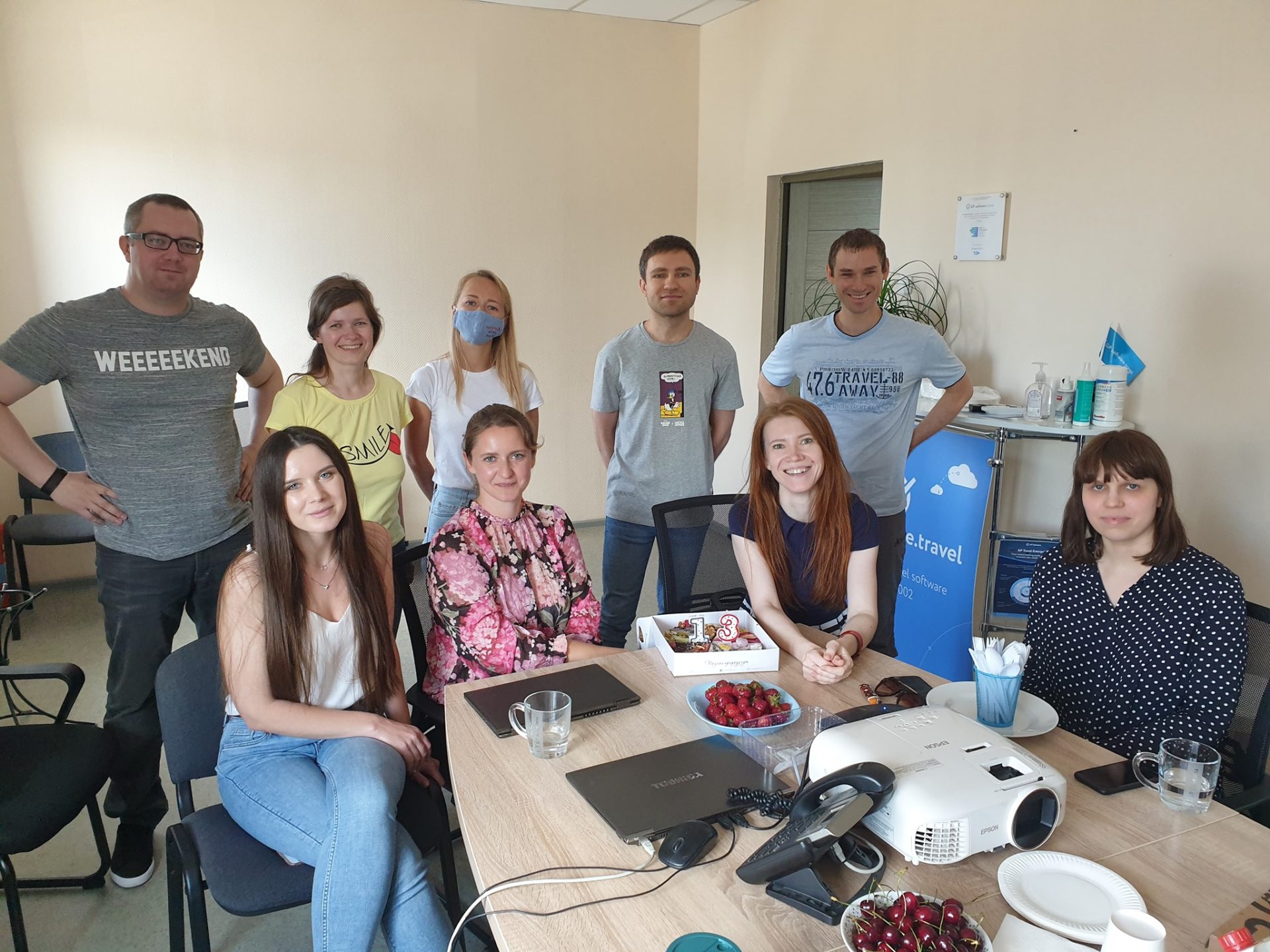
We found our niche — travel
The first big customer we got was a travel company from Germany. It was a long-term project which taught us a lot: proper project management, building relations with enterprise-level customers, due handling of candidate interviews and staff management. As a result we augmented the team, hired highly qualified engineers and accumulated experience in implementing large-scale and technically complex projects. Besides, we studied the travel market and it appealed to us a lot. So we thought — let’s take travel as our specialization!
Despite the fact that the competition back then was much lower (both externally and on the local labor market), we could hardly compete with large IT-companies without finding our niche. At least, we couldn’t explain to ourselves what our competitive advantages are. This led us to take travel domain specialization as our stand-out feature for years to come.
We were conscious and cohesive in declining projects that didn’t match our specialization. We understood that if tomorrow we get a new request from the travel domain, we won’t have available resources for it. Sure, this decision narrowed our market and delayed our growth. On the other hand, our travel focus helped us form the unique sales proposition (“USP”) which set the company apart and provided the foundation for long-term growth.
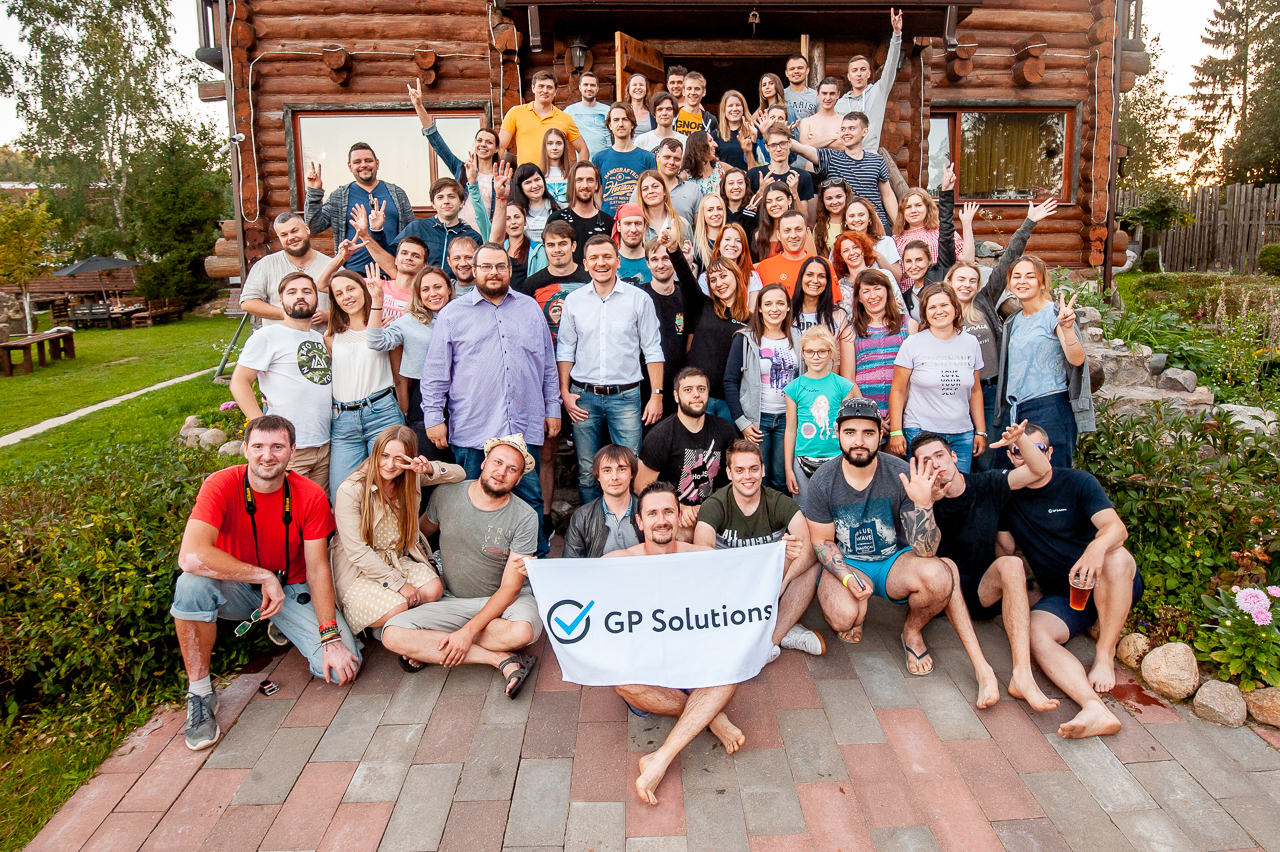 We were gradually earning expertise, trust and name for ourselves on the market. Geographically our primary focus was on the highly developed countries (Europe, the USA). After a few years of travel specialization we reached the phase of rapid growth, approximately from 2005 to 2008. It’s like with a student’s record book – first you work for it, then it works for you. We started getting leads by recommendation. The company became 3, then 4 times larger. We had around 50 employees.
We were gradually earning expertise, trust and name for ourselves on the market. Geographically our primary focus was on the highly developed countries (Europe, the USA). After a few years of travel specialization we reached the phase of rapid growth, approximately from 2005 to 2008. It’s like with a student’s record book – first you work for it, then it works for you. We started getting leads by recommendation. The company became 3, then 4 times larger. We had around 50 employees.
Building our own product
Our specialization allowed us to aggregate lots of domain-specific knowledge in travel. We started noticing that we repeatedly solve very similar business problems from one project to another (automation of interactions with external travel suppliers like GDSs (Global Distributions Systems), bedbanks and etc., processing of travel orders, tours, creation of travel search & book flows and so on) by creating custom code from scratch every time. At some point we realized we can make use of our rich knowledge base to create our own travel automation software.
But any product development means considerable investment. The amounts were quite easy to estimate based on the minimum team required for development: 2 back-end developers, 2 front-end developers, an architect, a QA engineer, an analyst and a designer. 8 FTEs in total. All of them had to be paid competitive salaries (the market was $1000 to $2000 at that moment). It makes up $10-$15 thousand per month. This is only to cover the project team expenses, with no account of the accompanying administrative costs.
The development process can take years (1 year is a minimum for a large-scale solution), with no guarantee the product will be a success. And then you also need to invest in marketing. All of this gives us a budget of at least $100 000. We couldn’t afford it on our own and had to look for additional financing.
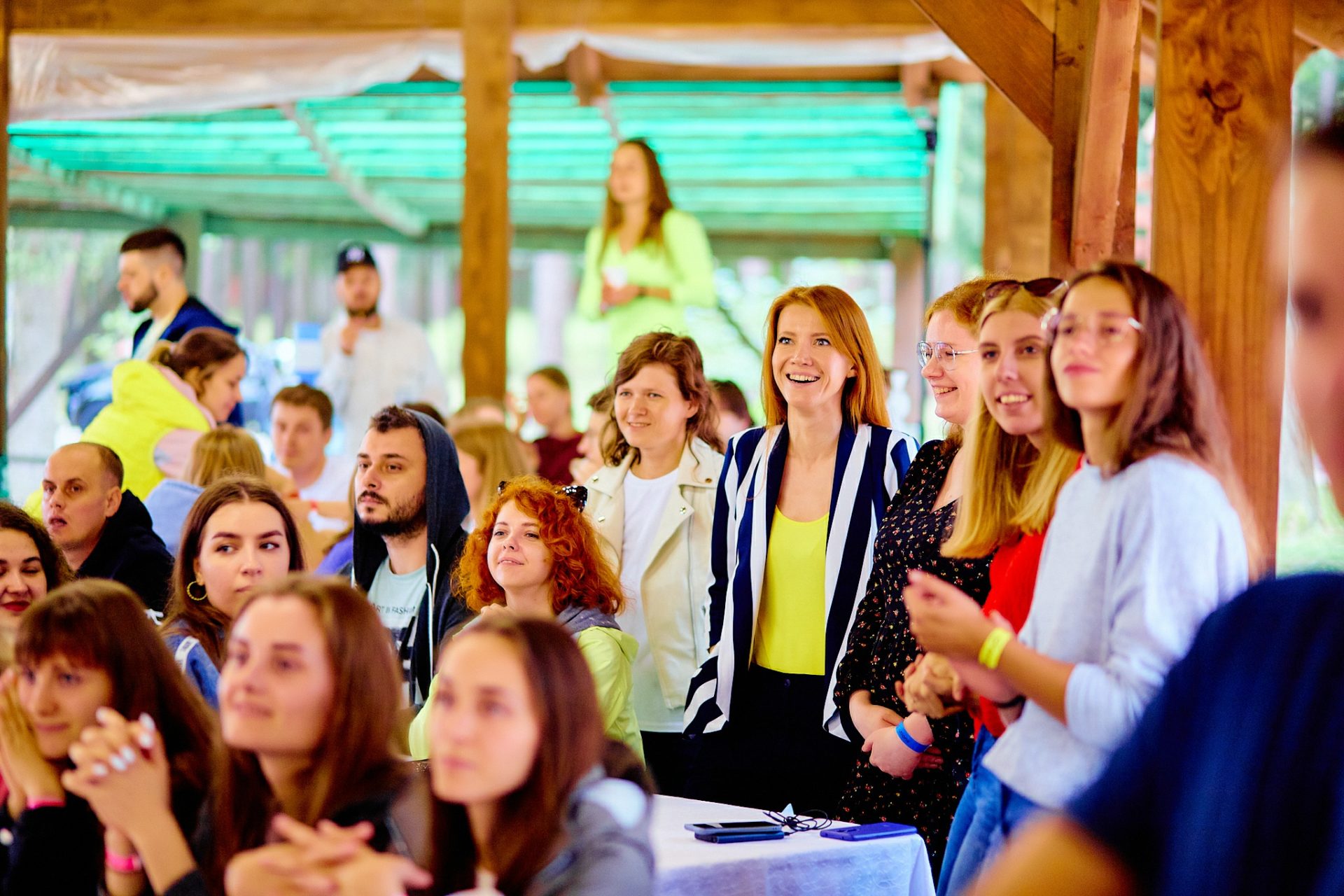 Ultimately we managed to reach a very favorable agreement with one of our clients. We agreed to deliver him the system at a price 3 times below the market, we were to keep the IP rights for it, while the client was to secure the right to use this system forever. The client was a tour operator – part of the market segment which promised the most to us in terms of product.
Ultimately we managed to reach a very favorable agreement with one of our clients. We agreed to deliver him the system at a price 3 times below the market, we were to keep the IP rights for it, while the client was to secure the right to use this system forever. The client was a tour operator – part of the market segment which promised the most to us in terms of product.
This was the start to our product development efforts. In 2010 we became a company which developed a proprietary industry-specific ERP-class solution – “GP Travel Enterprise”. There’s not much remaining from the original version now. A lot has been redesigned. Now the system has transformed into a complex platform consisting of several hundred modular components.
Our ERP-system automates various business processes for travel companies, such as: interactions with travel services suppliers, incoming booking processing, contract management, product availability management, creation of own travel products, multiple distribution settings for B2B and B2C, external integrations and so on. The platform is designed for medium- to large-size enterprises. The end goal is to optimize the business and personnel required to run the business (for example, to decrease the required staff from 30 to 5 employees). Each project (usually quite large in scale) involves in-depth analysis of requirements, implementation, adaptation and platform customization according to specific customer requirements.
As a result of our work, a tourist willing to book a trip can find our client website on the Internet and purchase a complete tour or a hotel as a separate service.

Besides GP Travel Enterprise, we continued expanding our custom development department as part of the travel domain specialization. Our industry expertise is much broader than the tour operator segment allocated for our product. This fact helped us successfully apply our knowledge on automation projects for other types of travel and hospitality companies: airlines, cruise operators, hotels and many others. More to that, not every business can be satisfied with a ready-made solution. So the custom development branch continued to develop organically alongside the product department.
Later on we managed to acquire a powerful domain software.travel and dedicated a separate website to our travel specialization. Thanks to active SEO efforts we secure stable top spots for the keyword “travel software” in search results across the globe. This was a valuable addition to our lead generation.
The Team
Our company grew and expanded. In due time talented individuals emerged from our team, who had enough skill to take responsibility for entire business departments. The credit for the company as it is now should be given not only to me or Rodion, but also to Maria Bondarenko and Eugene Boiko. Maria came to GP Solutions 15 years ago as a business analyst, and Eugene – 13 years ago as a software engineer. Their hard work, dedication and active involvement in company development made them our business partners. They currently lead our key business branches: Maria is our Head of Product, and Eugene is the Head of our custom development department.
As of now, our staff has reached around 350 people.Our clients know us as a German software vendor. We have our headquarters in Munich with a relatively small staff, which also includes me and Rodion. We have also opened several branch offices across Poland and are also present in Ukraine. Once created, the new offices started steadily growing in size, with new employees coming in. We’ve always pursued quality in the first place, not quantity. We strive to maintain decent and respectful relationships with all our employees and partners.
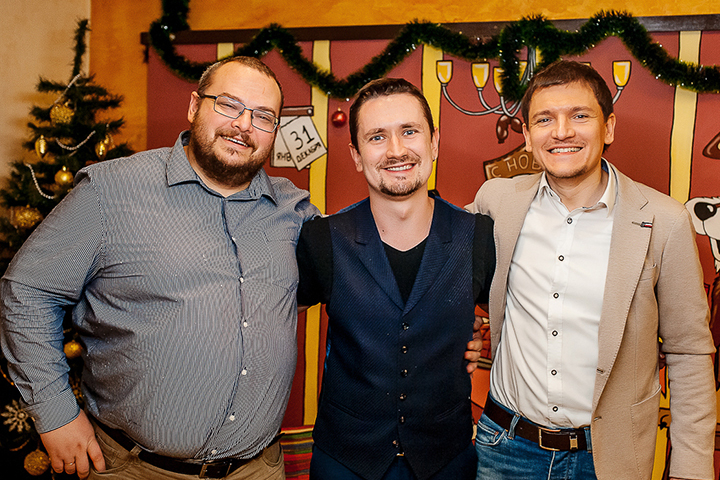
Employee development within the company takes time, effort and energy. Of course, we have junior-level developers, but not as many as in larger IT-companies. We run courses from time to time and take in interns. We are in close collaboration with IT-schools.
Diversification and how it saves you in times of crisis
All the clever textbooks and manuals teach us that specialization “rules”. This statement is true until, for instance, your entire target industry or the economy of your whole target region comes crashing down. Then it gets very hard and complicated, and no one is safe from this to happen. Diversification can keep your company risks to a minimum in such cases.
Case # 1: diversification by region. From 2011 to 2014 we were heavily bound to the CIS market concerning our product. The economy of this region expanded rapidly. Our platform was in great demand amongst the local tour operators, most of the competitors were no match for us technologically. One could say we really felt “at home” at the offices of many large and renowned travel companies.
We were on the brink of shifting our entire activities to this region. But as soon as we started thinking about it, the crisis ruined everything. The oil prices plummeted, the demand for traditional pre-packaged tours decreased several times over and the local tour operators went bankrupt one after another. We had no choice but to leave this market and move the focus of our sales & marketing department to the western countries, constantly trying new pricing and promotion models and approaches. Now we are proud to say that our platform works for customers in over 35 countries worldwide.
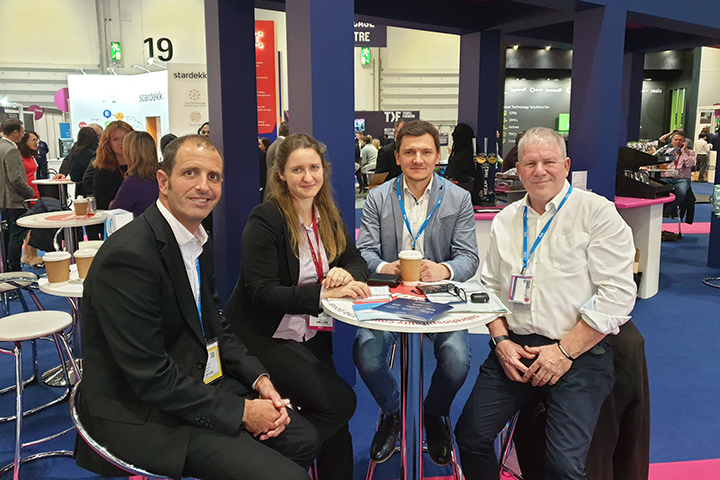
Case # 2: diversification by business areas. Although the main share of our development projects were in the travel domain, we from time to time acquired projects in other industries — banking, finance, e-government, social networks and others. We didn’t invest anything in promotion there. Most of the projects we got were by reference. If we found an interesting request, we took it. As time went on, we accumulated a number of projects of this kind. This led us to separate our 3rd branch of business – general outsourcing.
In times of COVID-19 people almost stopped traveling. The entire travel industry collapsed worldwide. The fact that we didn’t shrink in size several times over is largely thanks to our general outsourcing activity. I’d say that our specialization played a cruel trick on us, whereas diversification happened to be our saving straw.
At the same time we see huge delayed demand for travel services. We reasonably expect a surge of interest in our travel software development services as soon as all travel restrictions get canceled.